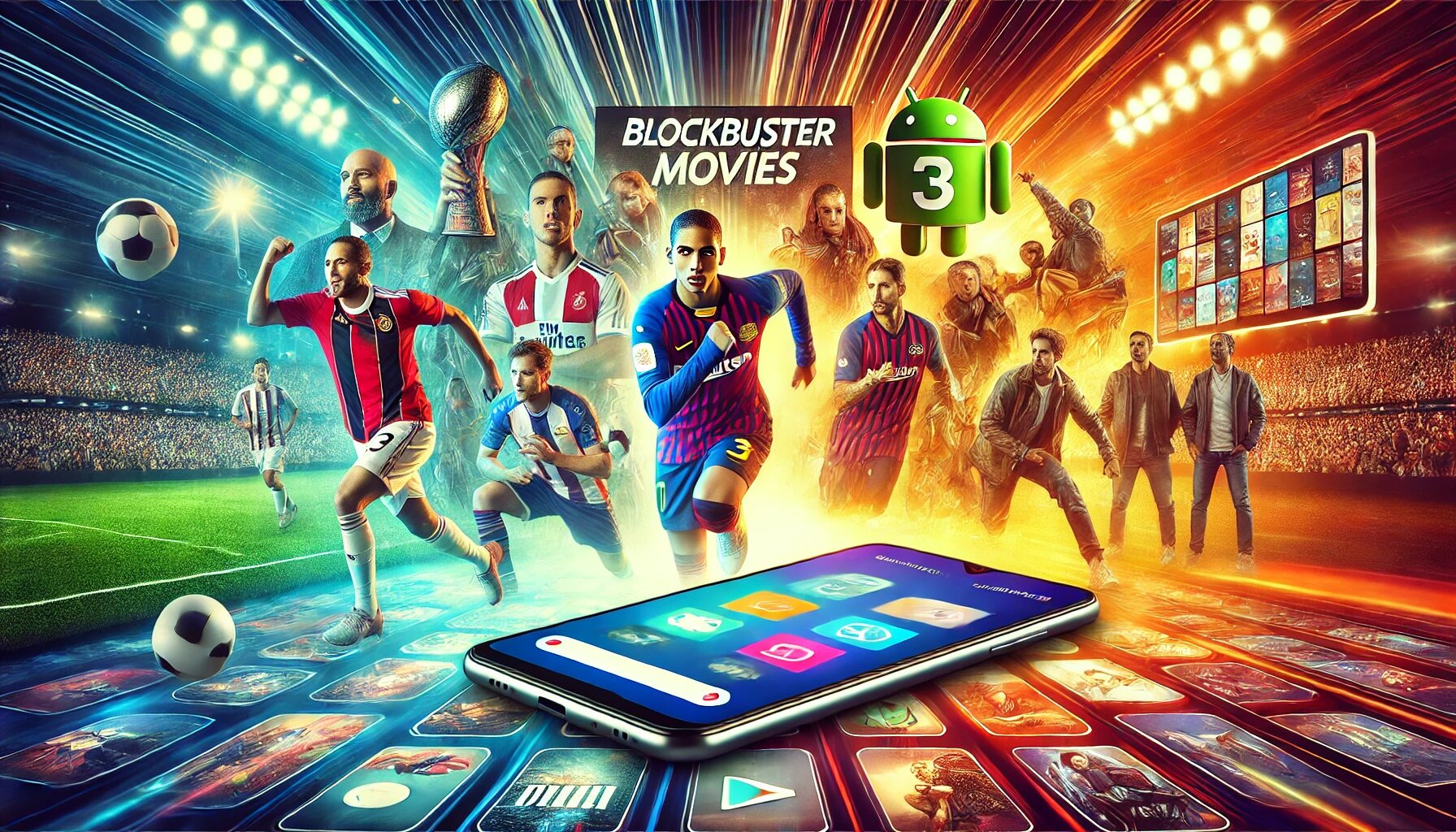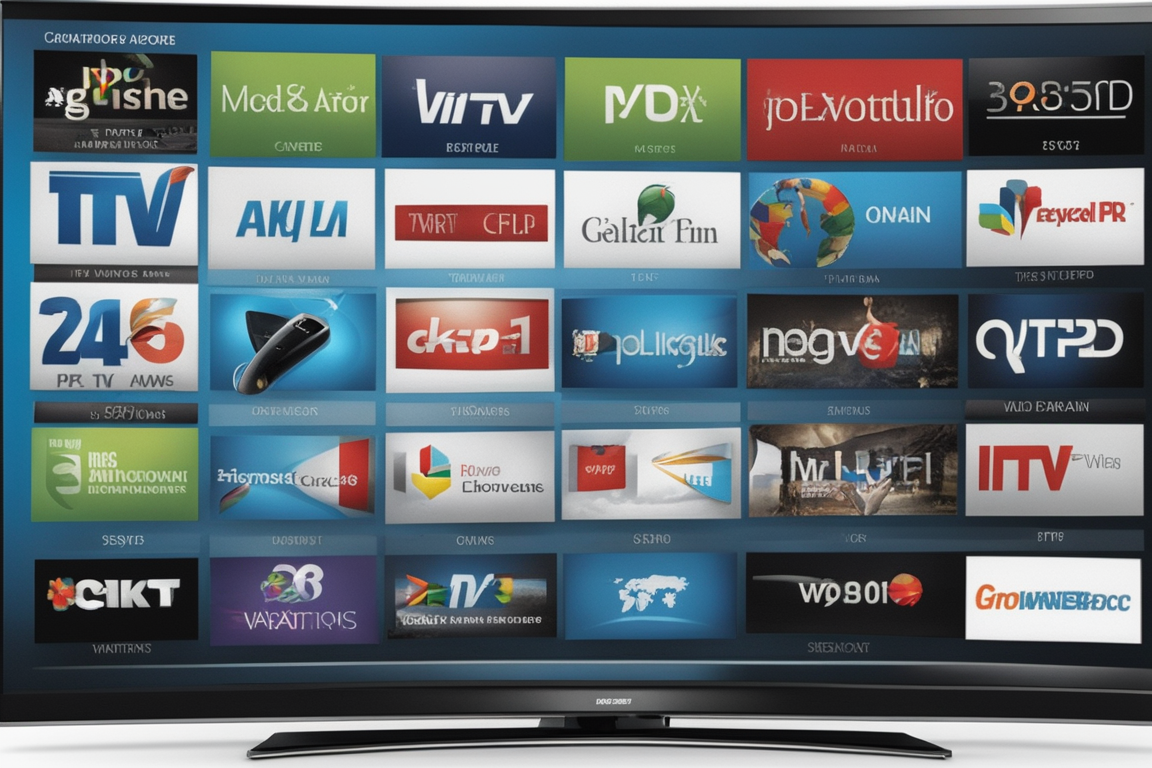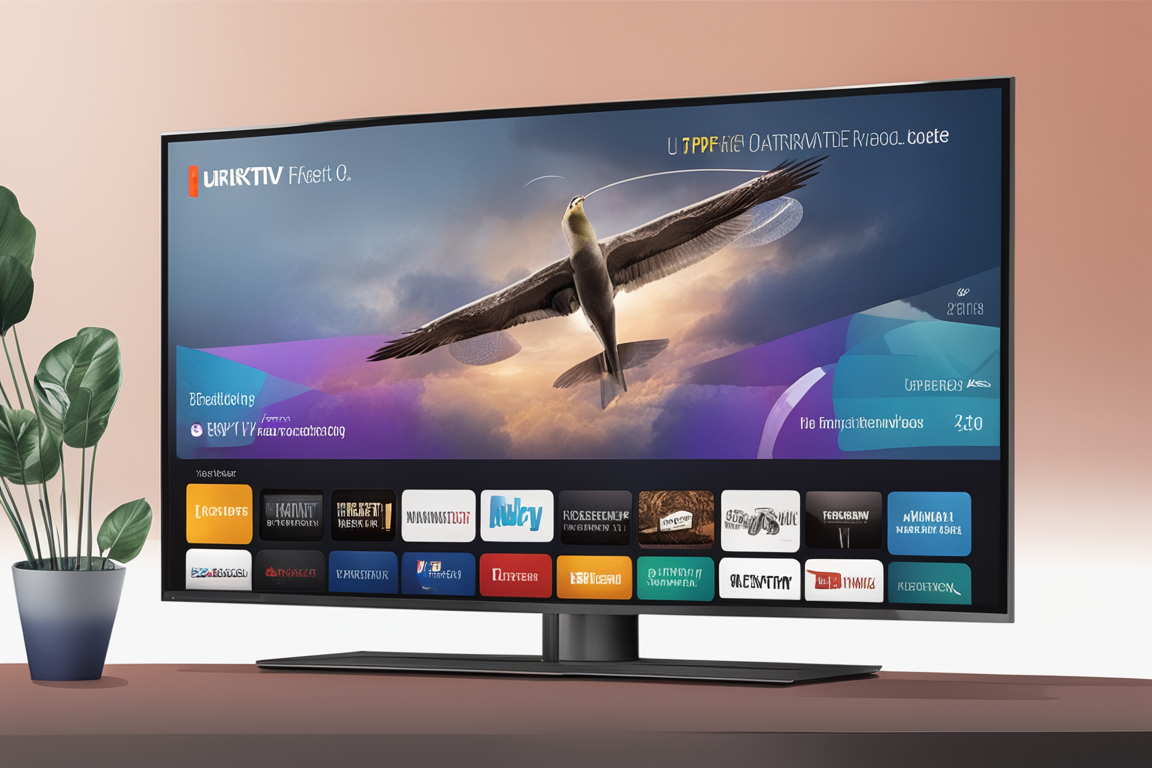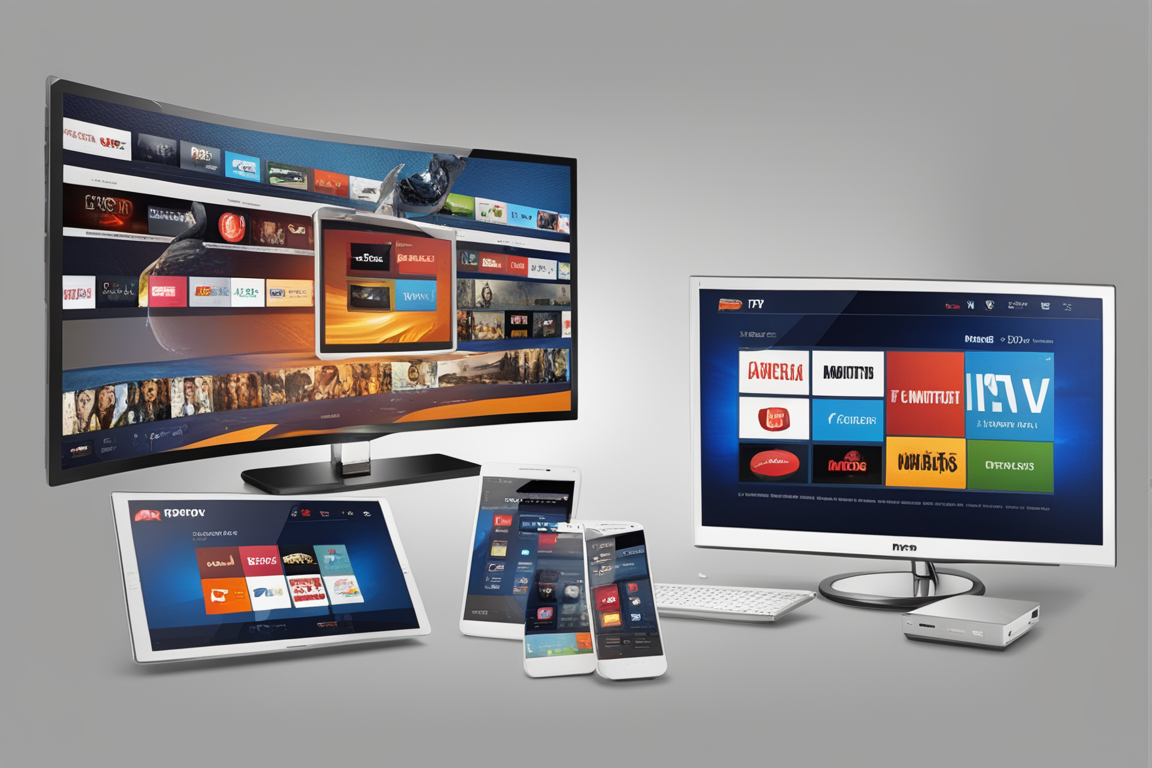What is IPTV? | The Verdict on Internet TV in USA

In the evolving landscape of digital entertainment, IPTV stands out as a beacon of innovation and practicality, challenging the traditional television delivery mechanisms. Unlike the conventional methods of broadcasting through cable, satellite, or terrestrial formats, IPTV offers television content via internet protocol (IP) networks. This technology not only revolutionizes how we consume video content but also integrates seamlessly into our internet-driven lives, making it a compelling choice for modern viewers.
Learn about IPTV
- IPTV is a service that delivers television content over the internet.
- IPTV works through an internet connection and a device to stream content.
- To watch IPTV, you need a stable internet connection and a compatible device.
What is IPTV?
IPTV, or Internet Protocol Television, is a service where television content is delivered to your device through a network connection instead of being broadcast over traditional formats. This system transforms traditional media content into a series of packets of data like any other form of online content such as a webpage or video on YouTube. What sets IPTV apart is its ability to provide more dynamic and interactive experiences with better control and customization of media broadcasts.

IPTV comes in three different flavors: Live television, which allows you to watch live broadcasts as you would on traditional TV; Time-Shifted Media, also known as catch-up TV (like the BBC iPlayer), which replays a TV show that was broadcast hours or days ago; and Video on Demand (VOD), which is similar to services like Netflix where users can select a video from a catalog of content.
How does IPTF work?
At its core, IPTV is distinctly different from traditional television formats. IPTV sends shows and movies through your standard internet connection, unlike traditional television that uses satellite signals and broadcasting frequencies. In technical terms, IPTV content is often delivered over a managed or dedicated network. This controlled delivery helps to ensure quality and can also increase security.
When you stream IPTF, the video streams as small packets of data over the internet from a server. Your IPTV box, smart TV, or device will then decode these signals to display the content. This process requires a stable and robust internet connection to handle large amounts of data, especially if the content is high definition or ultra-high definition.
What are the benefits of IPTF?
Flexibility and Scalability: IPTV can be as broad or as niche as required. The content can be customized to the needs of various audiences, from vast national audiences to specific local or even individual requirements.
Interactivity and Control: With IPTV, viewers can control what they want to watch and when they want to watch it. Services like VOD and Time-Shifted Media empower users to view content on their schedule.
Efficiency and Quality: IPTF allows for high-quality video streams with less buffering and higher resolution than traditional formats. This is because IPTV can adjust the quality of the stream based on the available network bandwidth.

Real-Life Scenario: Sarah's IPTV Experience
Sarah's Introduction to IPTV
Sarah, a busy working professional, was looking for a more convenient way to watch her favorite TV shows and movies without having to stick to a strict cable TV schedule. Intrigued by the concept of IPTV, she decided to give it a try after hearing positive reviews from friends who had already made the switch.
Sarah's Seamless IPTV Setup
Sarah found the process of getting IPTV surprisingly straightforward. She researched different IPTV providers, chose a reliable one within her budget, and signed up for a subscription. With just a stable internet connection and a compatible device, she was ready to enjoy a wide range of channels and on-demand content at her fingertips.
The Benefits of IPTV for Sarah
For Sarah, the benefits of IPTV were immediately apparent. She appreciated the flexibility of being able to watch her favorite shows anytime, anywhere, without being tied to a specific television set. The crystal-clear picture quality and access to a vast library of content made her viewing experience more enjoyable and tailored to her preferences.
Conclusion
Sarah's positive experience with IPTV highlights the convenience and customization that this modern streaming technology offers. Whether at home or on the go, IPTV has become an integral part of Sarah's entertainment routine, providing her with a personalized viewing experience that traditional TV services couldn't match.
What are the drawbacks of IPTV?
Despite its many benefits, IPTV is not without its challenges:
Dependency on Internet Connection: A robust, uninterrupted internet connection is crucial for IPTV. If your internet service suffers from low speed or high latency, the experience can be frustrating with frequent buffering and reduced quality.
Complexity and Cost of Setup: Setting up IPTV might require additional hardware like a set-top box or more advanced networking arrangements which can be a barrier for some users.
Regulatory and Legal Challenges: IPTV operates in a gray area in many regions. The lack of clear regulations can sometimes lead to service disruptions and other legal challenges.
What do I need to watch an IPTV stream?
To get started with IPTV, you primarily need a stable internet connection with a minimum speed of 10 Mbps for a good streaming experience. Additionally, you will need an IPTF compatible device such as:
- Smart TVs: Many modern TVs come with built-in IPTV support.
- Set-Top Boxes: Devices like the MAG box, Amazon Fire TV Stick, or Apple TV.
- Computers and Mobile Devices: Using software applications like VLC or IPTV apps.

How do I get IPTV?
Obtaining IPTV services can vary depending on where you live and what content you wish to access:
- Free IPTV Services: These are often limited in scope and content but can be a good way to get acquainted with IPTV.
- Paid IPTV Subscriptions: These services often provide a broader range of content and better service quality. Providers may offer bundled services that include IPTV as part of a broader package of internet and VoIP.
How do I watch IPTV?
Once you have your subscription and device setup, watching IPTV is as simple as launching the app provided by your IPTV service provider. You can then browse through the channels and content available to you, much like you would on a traditional television.
Can I use a VPN with IPTV?
Using a VPN with IPTV can enhance your streaming experience by providing increased privacy and security. It can also allow you to bypass geographical restrictions, expanding the range of content available to you. However, ensure that using a VPN complies with your IPTV provider’s terms of service.
Can I use IPTV on my phone?
Yes, you can use IPTV on your phone by downloading an IPTV app and entering your subscription details. This makes it incredibly convenient to watch your favorite shows on the go.
Can I use IPTF on my smart TV?
Most modern smart TVs support IPTV either through native apps or third-party applications. This integration can greatly enhance your viewing experience by merging traditional TV functions with interactive enhancements.
Can I use IPTV on my computer?
Yes, watching IPTV on a computer is straightforward. Software like VLC Media Player can play IPTV streams if you have the correct URL, making it a versatile option for desktop viewing.
Conclusion
IPTV represents a significant shift in the way we consume media, offering a more personalized, flexible, and interactive system that fits naturally into the internet-driven era. While it comes with its set of challenges, the benefits far outweigh the drawbacks, making it a formidable contender in the future of broadcasting. As technology and internet speeds continue to improve, IPTF is set to become even more accessible and enjoyable for an ever-growing audience.
Questions
Q: What is IPTV and how does it work?
A: IPTV stands for Internet Protocol Television, delivering TV content through internet connection to devices like smart TVs.
Q: Who can benefit from using IPTV services?
A: Anyone with a stable internet connection can benefit from IPTV services, allowing access to a wide range of TV channels and content.
Q: How do I set up IPTV on my device?
A: Setting up IPTV involves subscribing to a service provider, receiving login credentials, and downloading the app on your device.
Q: What if my internet connection is not fast enough for IPTV?
A: If your internet connection is slow, you may experience buffering issues or lower quality streaming when using IPTV services.
Q: Can I watch live sports events through IPTV?
A: Yes, IPTV services offer access to live sports events, allowing you to watch your favorite games in real-time on various devices.
Q: Is IPTV legal to use?
A: IPTV is legal to use as long as you subscribe to legitimate service providers and do not engage in accessing copyrighted content illegally.
